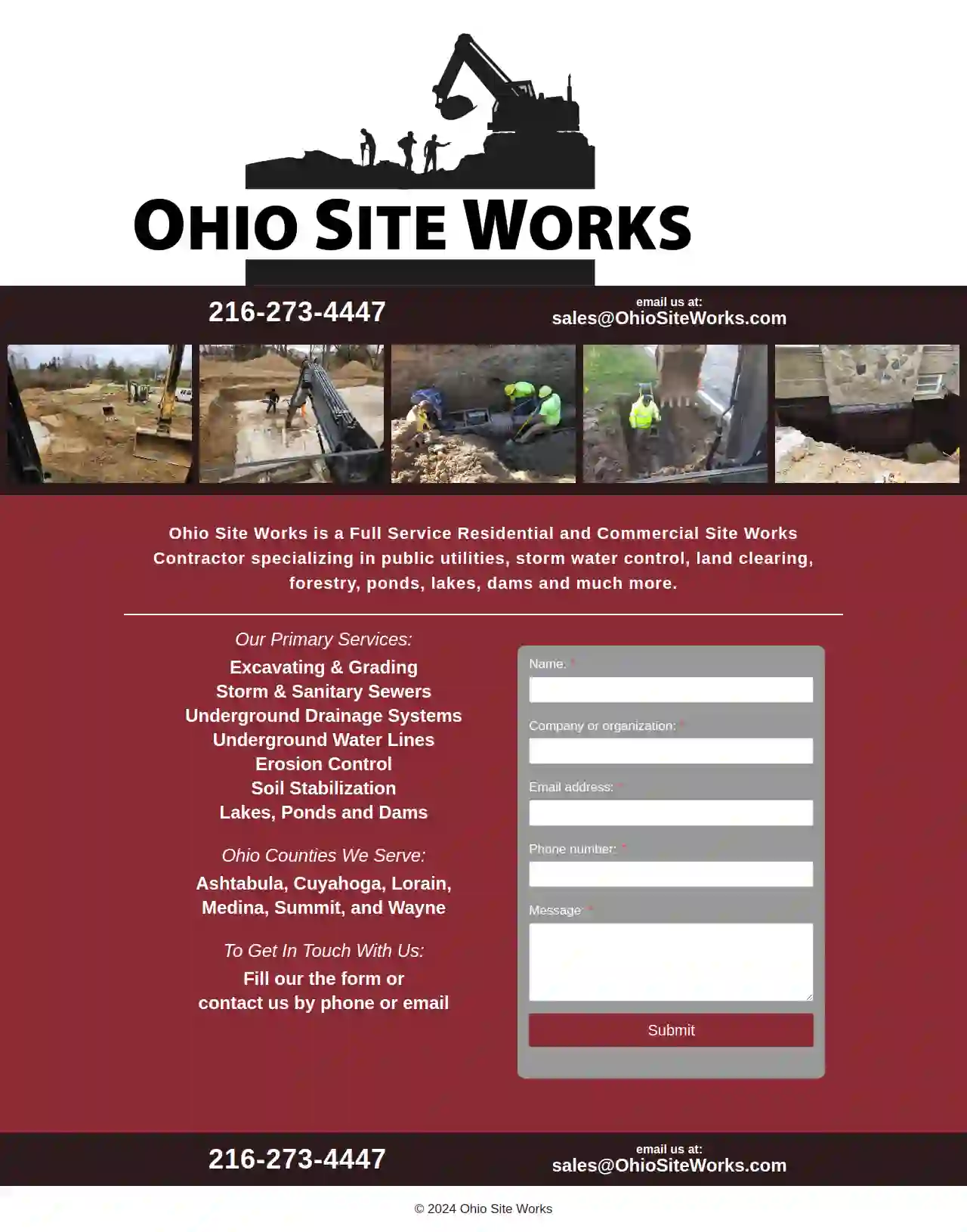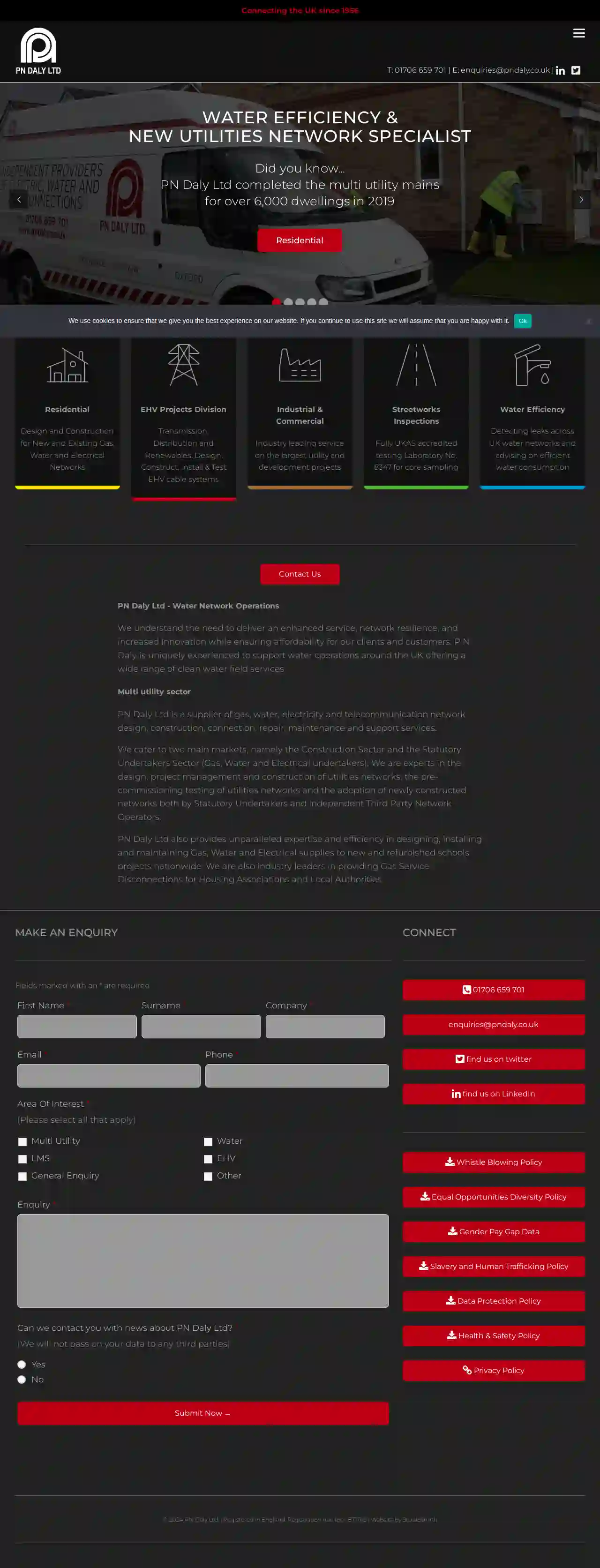Excavation Contractors Leicestershire
Find Excavation Companies in Leicestershire
Receive up to 3 Excavating Contractors quotes for your project today! Compare profiles, reviews, accreditations, portfolio, etc... and choose the best deal.

Picker Elliott Estate Agents Hinckley
4.7137 reviews110 Castle Street, Hinckley, Leicestershire, LE10 1DD, GBPicker Elliott: Your Established Local Property Partner Picker Elliott is one of the leading independent estate agents in Hinckley, Leicestershire. Established in 2004, we offer a fully engaging service using modern marketing at a competitive price for all property sales and lettings. As an independent Estate Agent, we are able to offer a personal, enthusiastic service establishing long term client relationships built from our trust, integrity and results. Our dedicated professional staff are on hand to help you with all aspects of your selling or letting process.
- Services
- Why Us?
- Gallery
Get Quote- Th
Thornycroft groundworks
57 reviewsHinckley, GB- Services
- Why Us?
Get Quote - Mc
Mccreadys home improvements
55 reviewsHinckley, GB- Services
- Why Us?
Get Quote - Pa
Pappas Excavating
1Hinckley, GB- Services
- Why Us?
Get Quote 
Ohio Site Works
51 reviewsHinckley, GBOhio Site Works is a full-service residential and commercial site works contractor specializing in public utilities, storm water control, land clearing, forestry, ponds, lakes, dams, and much more. We are committed to providing our clients with the highest quality workmanship and customer service. Our team of experienced professionals is dedicated to completing your project on time and within budget. We are proud to serve the following Ohio counties: Ashtabula, Cuyahoga, Lorain, Medina, Summit, and Wayne. Contact us today to learn more about our services and how we can help you with your next project.
- Services
- Why Us?
- Gallery
Get Quote
P. N. Daly Ltd.
1Hinckley, GBPN Daly Ltd - Water Network Operations We understand the need to deliver an enhanced service, network resilience, and increased innovation while ensuring affordability for our clients and customers. P N Daly is uniquely experienced to support water operations around the UK offering a wide range of clean water field services. PN Daly Ltd is a supplier of gas, water, electricity and telecommunication network design, construction, connection, repair, maintenance and support services. We cater to two main markets, namely the Construction Sector and the Statutory Undertakers Sector (Gas, Water and Electrical undertakers). We are experts in the design, project management and construction of utilities networks, the pre-commissioning testing of utilities networks and the adoption of newly constructed networks both by Statutory Undertakers and Independent Third Party Network Operators. PN Daly Ltd also provides unparalleled expertise and efficiency in designing, installing and maintaining Gas, Water and Electrical supplies to new and refurbished schools projects nationwide. We are also industry leaders in providing Gas Service Disconnections for Housing Associations and Local Authorities.
- Services
- Why Us?
- Gallery
Get Quote- Be
Bells Earth Works
54 reviewsHinckley, GB- Services
- Why Us?
Get Quote - Hi
Hinckley Construction
52 reviewsHinckley, GB- Services
- Why Us?
Get Quote - UK
UK Skip Hire Burbage
1Hinckley, GB- Services
- Why Us?
Get Quote - We
Weakley Excavating | Excavation Service, Site Work Contractor, Excavating Company
1Hinckley, GB- Services
- Why Us?
Get Quote
Over 11,537+ Excavation Contractors registered
Our excavation contractors operate in Leicestershire and beyond!
ExcavationHQ has curated and vetted the Best Excavation Businesses in and around Leicestershire. Find a top & trustworthy pro today.
Frequently Asked Questions About Excavation Contractors
- Clear the Area: Remove any obstacles, including vehicles, outdoor furniture, landscaping features, or structures, from the excavation zone and surrounding area.
- Mark Existing Features: Identify and mark underground utilities, septic tanks, sprinkler systems, or other buried elements you want to protect.
- Protect Landscaping: Use tarps or fencing to shield trees, shrubs, gardens, or other landscaping elements from damage.
- Provide Access: Ensure the excavation contractor has clear access to the work area, including gates wide enough for equipment.
- Discuss Logistics: Coordinate with the contractor regarding parking arrangements, material delivery, and any special instructions or concerns you might have.
- Planning and Surveying: Defining the excavation area, marking utility lines, and determining the required depth and grade.
- Site Preparation: Clearing vegetation, removing obstacles, and ensuring site accessibility.
- Excavation: Using appropriate equipment (excavators, backhoes, etc.) to remove earth and create the desired excavation.
- Hauling and Disposal: Transporting excavated material to designated disposal sites, complying with environmental regulations.
- Backfilling and Compaction: Refilling the excavation with suitable material and compacting it to achieve the required density and stability.
- Grading and Finishing: Leveling and shaping the surface to the final grade for landscaping or construction.
- Determine the Area: Measure the length and width of the area you want to fill. Multiply them to get the area in square feet (or meters).
- Determine the Depth: Measure the difference between the existing grade and the desired grade (how much you need to raise the ground). This is the depth of fill required.
- Calculate Volume: Multiply the area (step 1) by the depth (step 2) to get the volume in cubic feet (or meters).
- Account for Compaction: Fill dirt compacts when it settles, so add 10% to 25% to the calculated volume to account for compaction. The exact percentage depends on the type of fill material.
- Basement Size: The larger the basement, the more excavation is required, increasing the cost.
- Soil Type: Excavating rocky or dense clay soil is generally more expensive than loose soil.
- Accessibility: Difficult-to-access sites might require specialized equipment or more labor, driving up costs.
- Foundation Type: The chosen foundation type (full basement, crawl space, slab) affects excavation needs.
- Underpinning: If underpinning (strengthening existing foundations) is necessary, it significantly increases costs.
- Disposal Fees: Hauling excavated soil to disposal sites adds to the overall expense.
How do I prepare my property for excavation?
What is the excavation process?
How do I calculate how much dirt I need for fill?
How much does it cost to excavate a basement?
How do I prepare my property for excavation?
- Clear the Area: Remove any obstacles, including vehicles, outdoor furniture, landscaping features, or structures, from the excavation zone and surrounding area.
- Mark Existing Features: Identify and mark underground utilities, septic tanks, sprinkler systems, or other buried elements you want to protect.
- Protect Landscaping: Use tarps or fencing to shield trees, shrubs, gardens, or other landscaping elements from damage.
- Provide Access: Ensure the excavation contractor has clear access to the work area, including gates wide enough for equipment.
- Discuss Logistics: Coordinate with the contractor regarding parking arrangements, material delivery, and any special instructions or concerns you might have.
What is the excavation process?
- Planning and Surveying: Defining the excavation area, marking utility lines, and determining the required depth and grade.
- Site Preparation: Clearing vegetation, removing obstacles, and ensuring site accessibility.
- Excavation: Using appropriate equipment (excavators, backhoes, etc.) to remove earth and create the desired excavation.
- Hauling and Disposal: Transporting excavated material to designated disposal sites, complying with environmental regulations.
- Backfilling and Compaction: Refilling the excavation with suitable material and compacting it to achieve the required density and stability.
- Grading and Finishing: Leveling and shaping the surface to the final grade for landscaping or construction.
How do I calculate how much dirt I need for fill?
- Determine the Area: Measure the length and width of the area you want to fill. Multiply them to get the area in square feet (or meters).
- Determine the Depth: Measure the difference between the existing grade and the desired grade (how much you need to raise the ground). This is the depth of fill required.
- Calculate Volume: Multiply the area (step 1) by the depth (step 2) to get the volume in cubic feet (or meters).
- Account for Compaction: Fill dirt compacts when it settles, so add 10% to 25% to the calculated volume to account for compaction. The exact percentage depends on the type of fill material.
How much does it cost to excavate a basement?
- Basement Size: The larger the basement, the more excavation is required, increasing the cost.
- Soil Type: Excavating rocky or dense clay soil is generally more expensive than loose soil.
- Accessibility: Difficult-to-access sites might require specialized equipment or more labor, driving up costs.
- Foundation Type: The chosen foundation type (full basement, crawl space, slab) affects excavation needs.
- Underpinning: If underpinning (strengthening existing foundations) is necessary, it significantly increases costs.
- Disposal Fees: Hauling excavated soil to disposal sites adds to the overall expense.